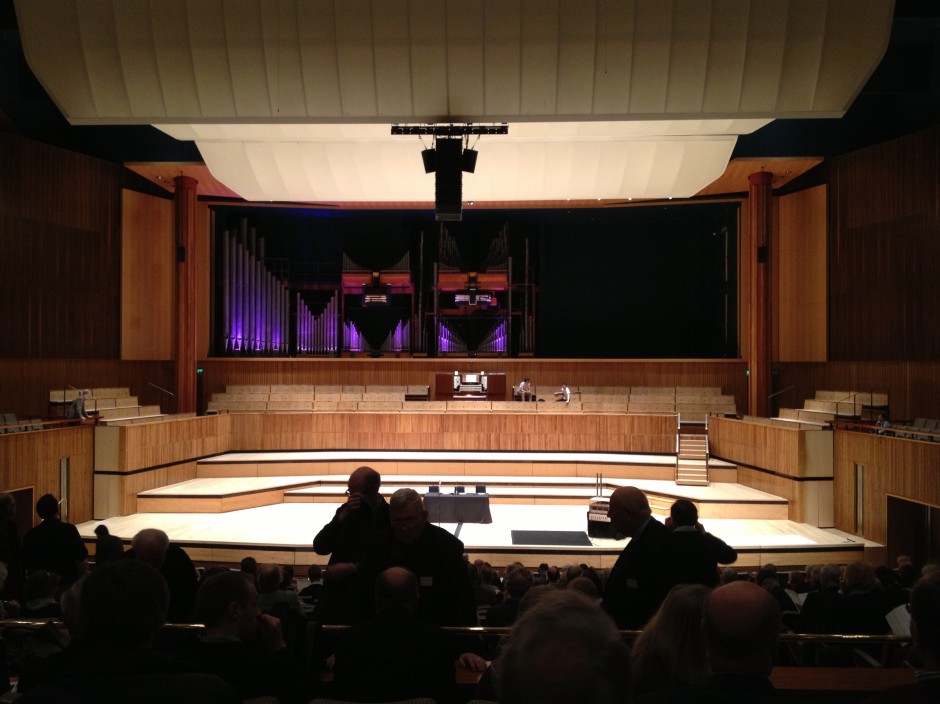
Dubbed the Marmite organ (you either love it or loathe it), the 1950s Royal Festival Hall Harrison & Harrison panorama organ has always been controversial. It’s two thirds through renovation, following a major refurbishment of the Hall itself, including a rethink of the notorious acoustic (Simon Rattle: ‘it sucked the life out of you’).
(NB this post was originally written in March 2013 – my updates on the restoration can be found here in The Royal Festival Hall organ)
London Organ Day on 23 February focused on the organ’s history, its peculiarities, and its future, led by William McVicker, Organ Curator for the Southbank Centre.
A major request in the Hall refurbishment was extra space on the stage, and an extra row of choir seating behind. So the organ had to come right out, and its front line moved back over a metre. This partly explains the £2.3m price tag on the work. At the moment the Swell and most of the Great and Pedal divisions are back in place, though the Pedal and Great reeds have only just been installed and are still being tested. The big hole in the right of the organ chamber will be filled this summer with the Positive, Choir and Solo divisions, and Harrison’s (who are doing the refurbishment) will be running 12 hour shifts, night and day (another cause of the £2.3m price tag), to get the voicing finished by Christmas, ready for the March 18th 2014 opening concert. Why do it? McVicker commented that most children now live in a secular environment, and their main chance of encountering the organ will be through concert organs like this one.
There isn’t space here for a full account of Ralph Downes’ attempt to synthesize Dutch, French and English influences in the design, which make it unique. Andrew Scott, head voicer at Harrison & Harrison, described Downes’ voicing and tuning ideas (which kept changing as he went along) – Downes deplored the practice of nicking pipes, which in his view removed their vitality, and believed in an open tip to allow an unrestricted flow of air. His ideal was a ‘natural’ sound that could change character through the stop, like a singer or oboe, in contrast to the ‘faked’ or ‘artificial’ sound that he observed in the smooth, consistent, English organ of the early 20th century (with the Royal Albert Hall organ representing everything that Downes disapproved of).
We had two recitals during the day: Tom Bell, with two young organ scholars, James Orford and Henry Websdale, performed music that had been written for, or premiered on, the organ: Brian Brockless Prelude, Toccata and Chaconne, Leighton Paean, and extracts from the Malcolm Williamson Organ Symphony.
The day ended with a recital by Kevin Bowyer: Suite en Fa by Thierry Pallesco, Sonatas 2 and 3 by Hindemith, finishing with Ian Farrington Fiesta.
And do I like the organ? At first I was enchanted by its clarity and presence. But towards the end of the recitals I was finding the clarity tipping over into stridency. The best organists, said McVicker, take nothing for granted here, and get someone to play for them while they listen in the hall.
The Southbank Centre Pull out all the stops website has video footage of the restoration work.
The Festival Hall Archive will be calling for memories of the organ in a campaign later this year, so start writing them down now (if your organ career goes back that far).
Ralph Downes’ book Baroque Tricks charts his organ design research and principles. Several well-thumbed copies were in evidence on Saturday. It’s out of print, but probably worth a read if you spot it in a library.

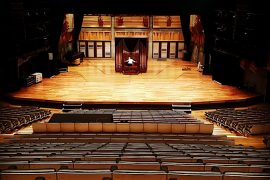
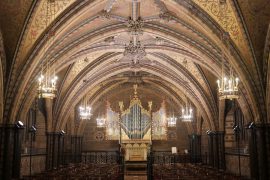
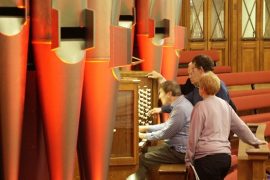
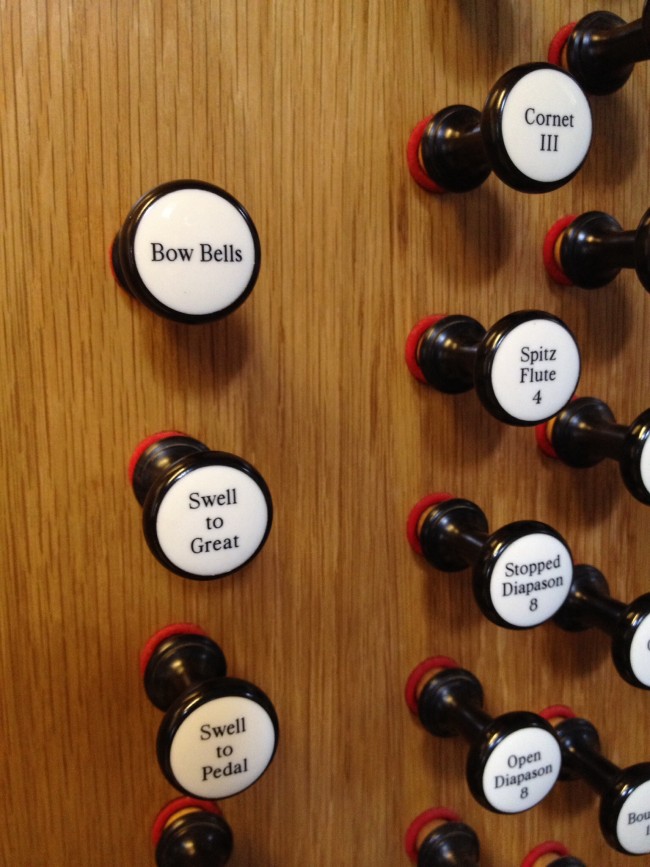
Hello,
I was delighted to see that one of my father’s pieces was performed on the RFH organ this year. Obviously saddened that I was unable to be there (I was unaware of it even having taken place until I saw this post about 5 minutes ago!)
My father assisted Ralph Downes in relation to the development of the organ.
All the best,
Adrian.
Great to hear from you Adrian. I’m sure the RFH would also like to hear from you (and anyone else with links to the organ) for their organ memories campaign organmemories@southbankcentre.co.uk or visit http://www.pulloutallthestops.org.uk